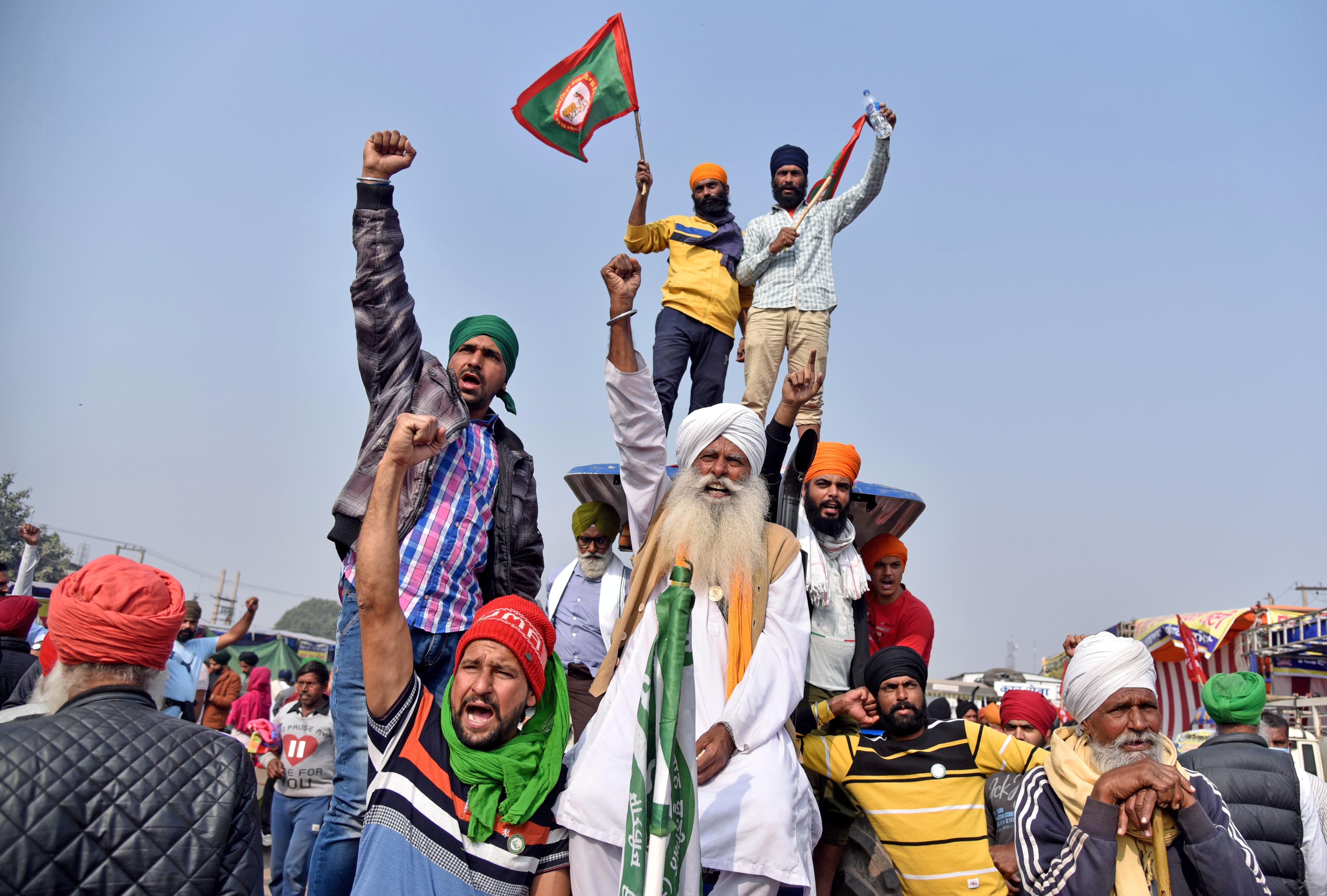I pray that reconciliation is achieved before it is too late.
One of the most important duties of any government, State and Central is to defuse crises, not aggravate them. The protests of the farmers from Punjab have now been going on for nearly a fortnight.
The experienced Chief Minister of Rajasthan, Ashok Gehlot, in sober terms blamed the government for the sufferings of the farmers. He asked the government to repeal the three Bills (the main demand of the farmers). According to him, these Bills were passed in Parliament “unconstitutionally, with brute majority, without any discussion”. He added, “The Chief Ministers of four Congress-led states, including me and Amarinder Singh, had sought an appointment with President Ram Nath Kovind to discuss the issue; the request was turned down, probably on some compulsion.” This really is not only amazing but, if I am not mistaken, probably unprecedented. It is the duty of the Head of State to receive a Chief Minister when he or they seek an appointment with him. Chief Ministers are elected individuals and hold the highest office in their state. This Presidential denial to meet four Opposition Chief Ministers is unfortunate. He could have heard them out and conveyed their views to the Prime Minister.
The conclusion is inescapable that government has so far underestimated the anger and determination of the farmers. The Jat Sikh is no pushover. He is defiant, stubborn and unafraid. At the same time, to measured sympathy and understanding he responds with promptness.
I know what I am talking about. I am married to a Jat Sikh lady, who comes from the most prominent Jat Sikh family in Punjab.
Like millions of fellow Indians all over the country, I pray that reconciliation is achieved before it is too late.
***
In the mid 1930s, there appeared on the Indian literary horizon three young novelists who were destined to have readers all over the world. These were, Mulk Raj Anand, R.K. Narayan and Raja Rao. All three were born in the first decade of the 20th century. Mulk Raj Anand in 1905, R.K. Narayan in 1906 and Raja Rao in 1909. All three passed away in their late nineties.
I knew all three intimately. Mulk and Raja owned much to E.M. Forster. Graham Greene was smitten by R.K. Narayan.
I knew R.K best. I first met him in 1955 in Mysore. In 1961, he was given the Sahitya Akademi Award for his novel, The Guide. On arrival in Delhi he located me at the Delhi Gymkhana Club, where I was living. This was his first visit to Delhi. He was at the time 55 years of age. I, rather unwisely asked him if I could in any way help him. He made two requests, “Show me the Mughal Gardens at Rashtrapati Bhavan and take me to meet Prime Minister Jawaharlal Nehru.” The first was easy. The second, not so. However, I did achieve both.
I took him to Teen Murti House to meet the Prime Minister. Nehru was familiar with Narayan’s name, but had not read any of his Malgudi novels. Nehru asked R.K. if he was familiar with Delhi. On R.K. telling him that this was his first visit, Nehru was surprised. Nothing earth-shaking happened. Very charmingly and politely he said, “I must rush to Parliament. My daughter, who has read some of your books, will take care of you.”
After more than 30 years I re-read Narayan’s A Writer’s Nightmare: Selected Essays 1958-1988.
I quote from his chapter on Indira Gandhi, “Our first meeting was in 1961 when I was taken by my friend Natwar Singh in order to call on Jawaharlal Nehru. After Nehru left, she took charge of me, led me to a table and organised an exquisite breakfast of fruits, toast and porridge and above all very good coffee. She put me at ease in a few minutes and soon we were discussing a wide range of subject…”
Sharada Prasad and I managed to get R.K. Narayan nominated to the Rajya Sabha. I last met R.K. in Madras on 2 February 1996. N. Ram, a great friend of Narayan, was also present. Five years later, R.K. died at the age of 96. Raja Rao was next to go at the age of 97. Mulk Raj Anand died in 2004 at the age of 99. I miss the company of all three very much. However, from time to time I read their books. This reduces my melancholy.
In the next few weeks, I intend to re-read Mulk’s The Coolee and Raja Rao’s The Serpent and the Rope.

